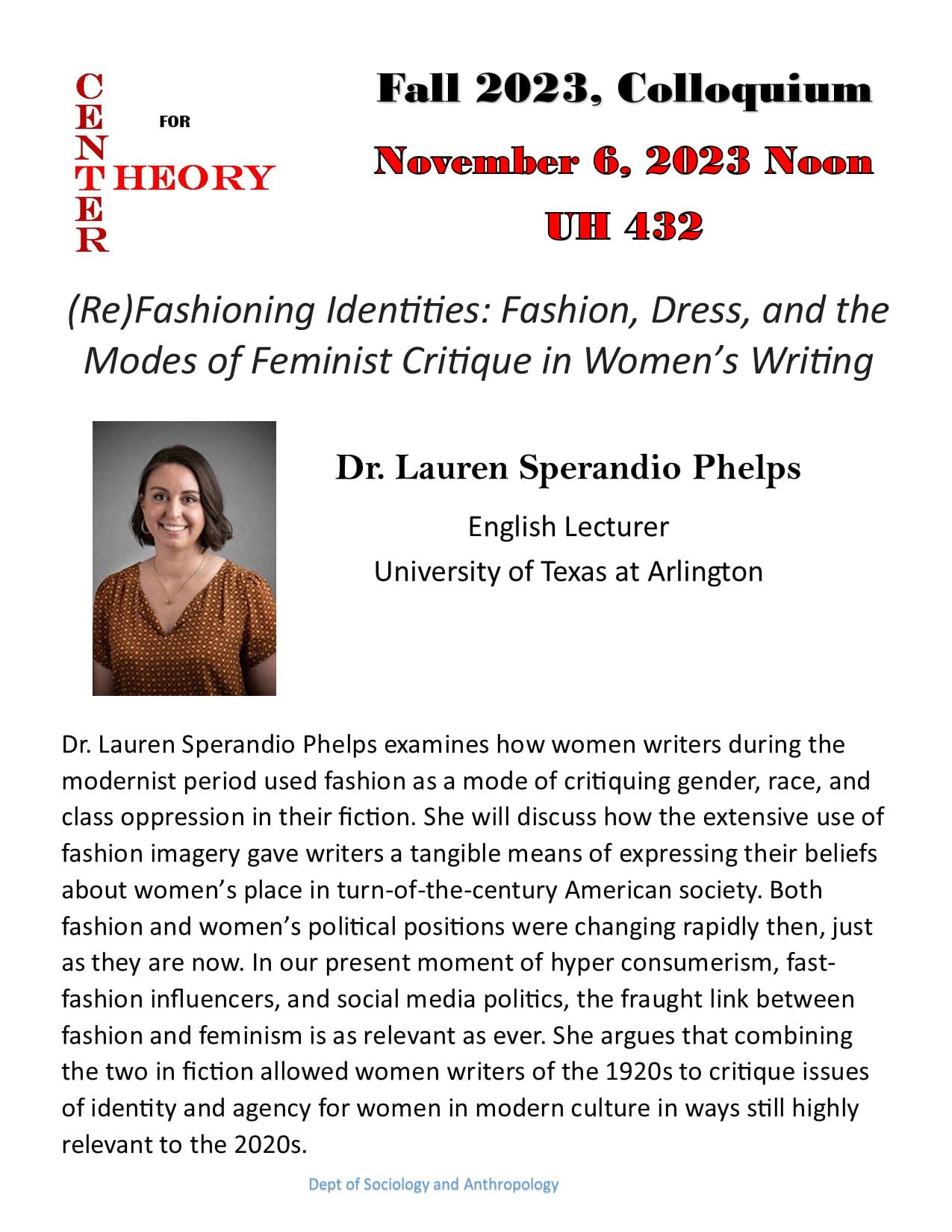On November 6, 2023 at 12pm, Dr. Lauren Sperandio Phelps will present her research at the Center for Theory’s colloquium in University Hall Room 432. Dr. Sperandio Phelps is a recent graduate of UT Arlington’s English doctoral program, where she is currently a lecturer. Her talk is entitled “(Re)Fashioning Identities: Fashion, Dress, and the Modes of Feminist Critique in Women’s Writing.”
ABSTRACT: Dr. Lauren Sperandio Phelps examines how women writers during the modernist period used fashion as a mode of critiquing gender, race, and class oppression in their fiction. She will discuss how the extensive use of fashion imagery gave writers a tangible means of expressing their beliefs about women’s place in turn-of-the-century American society. Both fashion and women’s political positions were changing rapidly then, just as they are now. In our present moment of hyper consumerism, fast-fashion influencers, and social media politics, the fraught link between fashion and feminism is as relevant as ever. She argues that combining the two in fiction allowed women writers of the 1920s to critique issues of identity and agency for women in modern culture in ways still highly relevant to the 2020s.
